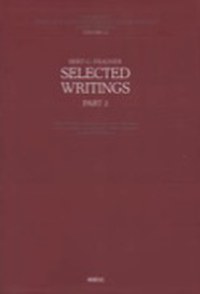
The new publication series, opened by the present volume, has the ambition to fill a gap in the research landscape in the field of Asian Studies. In spite of the considerable deveopment of comparative and contrastive research into Indo-Iranian languages and civilizations, and notwithstanding the general trend to interdisciplinarity in the studies of the multicultural areas of Central Asia, of the Iran maior, of the Indian subcontinent and the surrounding territories, we still miss a forum for publications in the sphere of Philology, Cultural and Social History, with a special focus on the topics and regions in question. Therefore we would like to establish the Indo-Iranica series as a deliberately large as well as thematically and methodologically open framework of scholarly discussion, in which both monographs and miscellaneous volumes on relevant subjects may find their place. The special Series purpurea, moreover, will unite selected writings of leading scholars, who have decisively enriched the research fields mentioned above, both by the results of their studies and by new (meta)methodological perspectives they have created. The volume in two parts that opens our series is programmatic in several regards, because it unites these two perspectives and shows that they do not contradict but creatively supplement and even imply each other. It contains a selection of the scholarly work of one of Europe’s most prominent representatives of modern, transdisciplinary Oriental studies – the Austrian Bert Georg Fragner. Prof. Dr. Bert Fragner’s amazing scholarly biography in the fields of Iranian, Central Asian and Islamic Studies, of Social and Cultural Anthropology, is well known far beyond the specific circles of the scholarly communities concerned, as are his achievements for these disciplines in leading institutional functions: as long-standing Full Professor at the University of Berlin and Bamberg, Germany, as President of the Societas Iranologica Europaea, as First President of the German Oriental Society, Full Member of the Austrian Academy of Sciences, and, in recent years, as founder and Director of its Institute of Iranian Studies.

